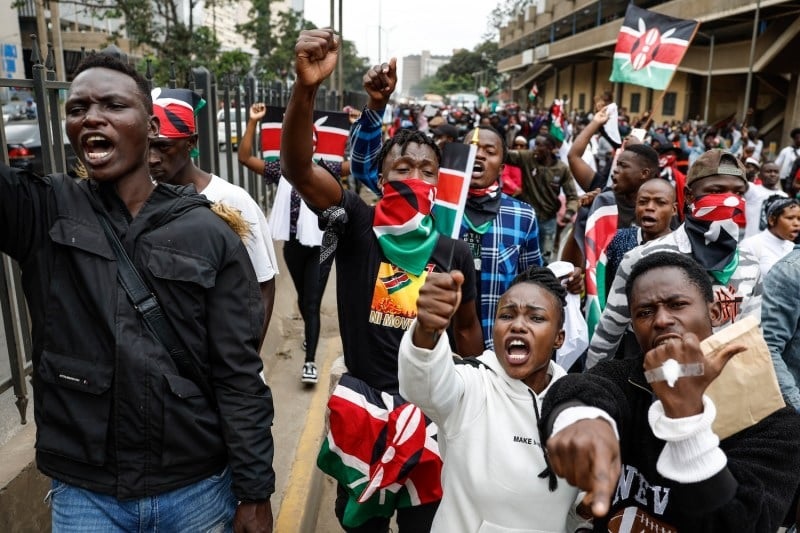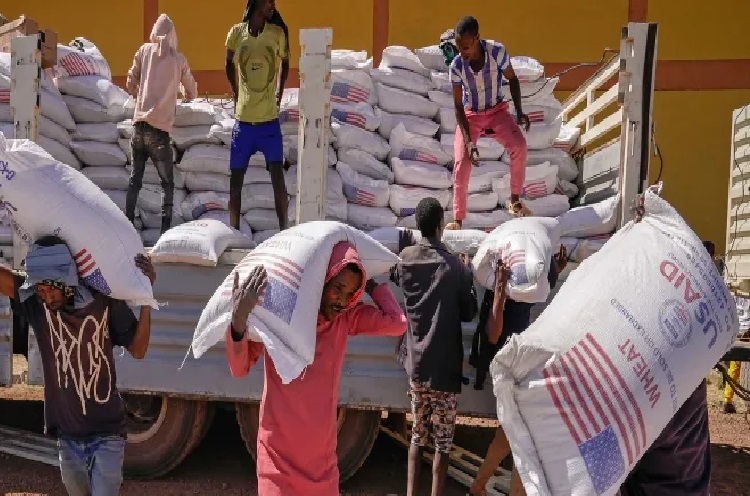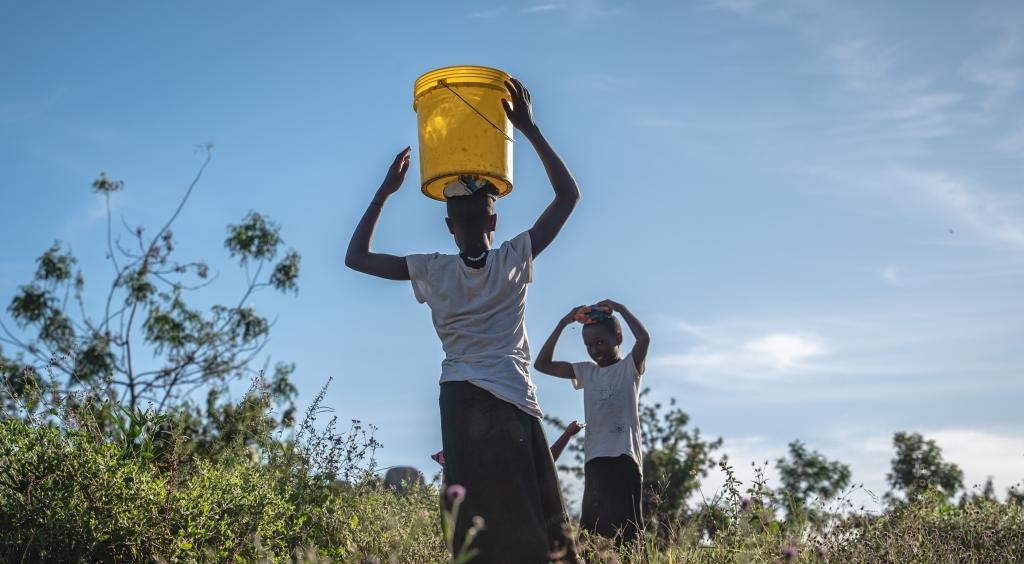A local state governor said “scores” of people had been killed in the attacks, which also saw homes and properties destroyed. Northeast Nigeria has been gripped by a deadly wave of violence in recent weeks
Armed gangs in northeast Nigeria have killed dozens of people in two suspected attacks, a local governor and villagers said Saturday. In a statement, the governor of Taraba state, Agbu Kefas, said “scores of people reportedly lost their lives and properties” in the attacks in the villages of Munga and Magani, in Karim Lamido district, early on Saturday.
Kefas did not provide an exact death toll, but Nigerian outlet the Daily Post said more than 30 people had been killed by armed gangs, known in the West African country as “bandits.” “It was midnight, I heard gunshots, I woke up my brother and other people in our area,” Magani resident Moses Kefas said. He added that he and his neighbors returned after the gunmen had left. “I saw 16 bodies scattered around the village,” he said. Andrew John, from Munga, said he had seen about 13 dead bodies in his village.
The governor condemned the violence “in the strongest terms,” calling it “horrendous and unacceptable.” “Our citizens’ safety is my top priority,” Kefas said, according to the Daily Post. “We have activated all necessary security measures to prevent further violence and bring those responsible to book.”
Northeastern Nigeria has been plagued by violence in recent weeks, as armed gangs and Islamist groups, including Boko Haram, have increased their attacks.
The region has been ravaged by a 16-year insurgency. Tens of thousands of people have been killed and two million have been displaced, while the local economy has been badly damaged.
Earlier, the Nigerian army said Friday it killed at least 16 Boko Haram militants during a midnight operation in northeastern Borno state.
Army spokesperson Onyechi Anele said troops launched sustained indirect fire around 1 a.m. in the Damboa Local Government Area, sparking a gun battle that led to the deaths of the insurgents.
Boko Haram, a jihadist group active across northeastern Nigeria and parts of Chad, Niger, northern Cameroon and Mali, has waged a brutal insurgency for over a decade, marked by mass killings and widespread displacement.
Borno state has, in recent months, witnessed a surge in terrorist activity, including the use of explosive devices to wreak havoc.
“The main thrust of the attack targeted the brigade, prompting the swift deployment of air support to reinforce ground troops,” Anele said in a statement Friday. She also confirmed that an ammunition storage area was hit during the exchange but was swiftly brought under control, with no further escalation.
Separately, Nigeria’s National Security Adviser Nuhu Ribadu said 15,543 insurgents have been killed across the country in the first two years of President Bola Tinubu’s administration. Ribadu made the disclosure Thursday during a presentation at the national summit of the All Progressives Congress, held to mark the administration’s second anniversary. ISWAP and Boko Haram have been battling Nigerian security forces for years in the northeast and often use IEDs to target civilians and security forces.
Boko Haram’s uprising has plagued the area for the past 15 years, killing more than 40,000 people. The government has asserted that the groups are largely defeated, despite the persisting attacks.
ISWAP is also active in northern Borno and has launched sporadic ambushes on convoys and planted landmines along its highways. Monday’s deadly blast comes amid a flare-up of violence in northeast Nigeria in recent days, with the death toll rising to at least 50 people.
Boko Haram killed about 10 “vigilantes” from the Civilian Joint Task Force (CJTF) in the state of Adamawa, sources reported earlier on Monday. On Thursday, the group killed 14 farmers in Borno’s Gwoza district, a local official said.
Borno State governor Babagana Umara Zulum on Friday told Nigeria’s defence minister and military chiefs that Boko Haram and ISWAP were entrenching themselves in Lake Chad islands, Sambisa Forest and Mandara mountains on the border with Cameroon as a result of “military setbacks”. Meanwhile, on Tuesday, Nigeria’s military appointed Major General Abdulsalam Abubakar as its 15th commander in the fight against the groups in the northeast, a spokesperson for the operation said in a statement.










